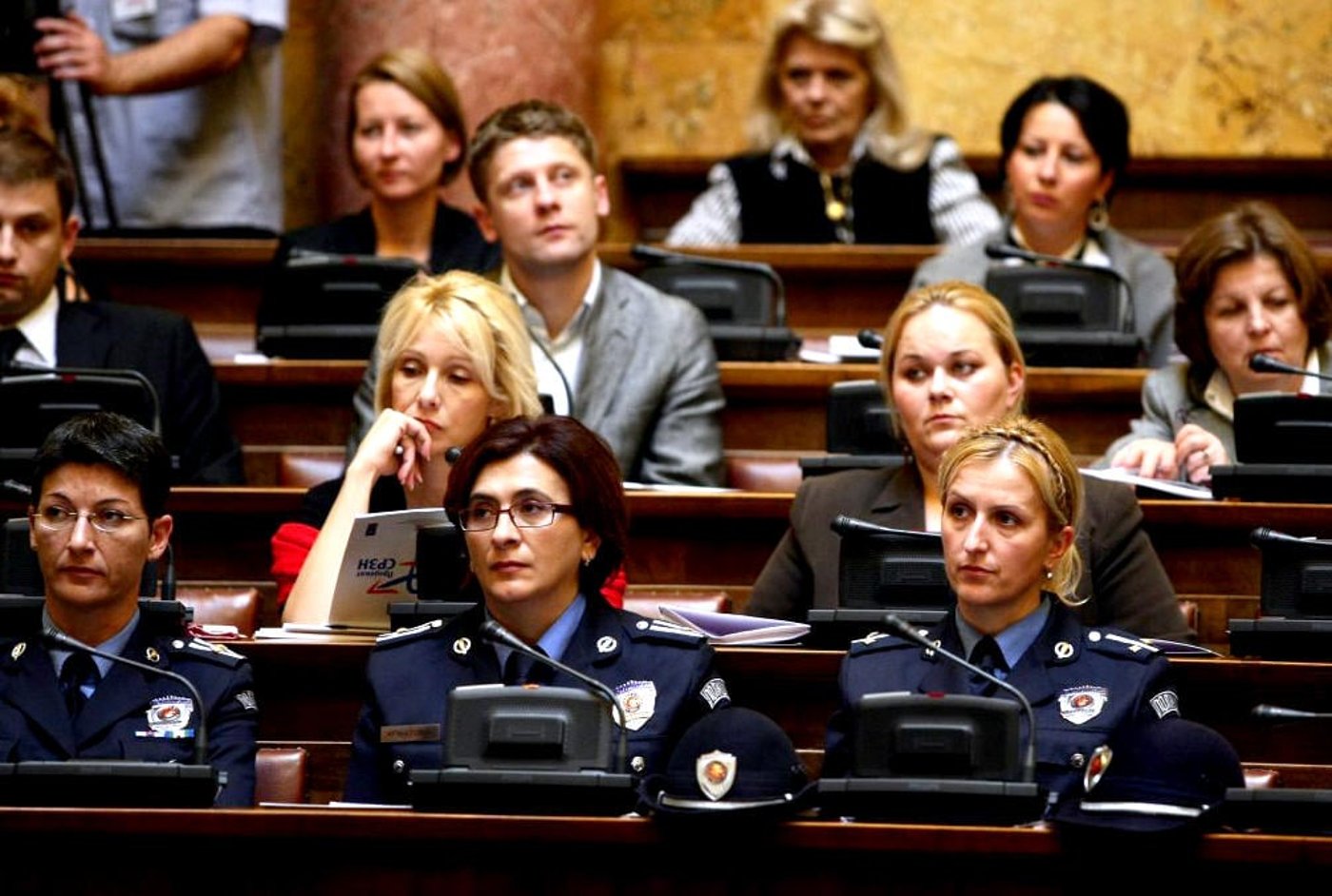
Ewa Sapiezynska was deployed to the OSCE through NORCAP’s NORDEM programme, working for the Office for Democratic Institutions and Human Rights (ODIHR) from 2015 to 2018. Every year NORDEM, with funding from the Norwegian Ministry of Foreign Affairs, seconds several advisers to the Organization for Security and Co-operation in Europe (OSCE).
During her mission in Warsaw, Sapiezynska got a central role in several of the processes and activities organized to facilitate the implementation of the UN Security Council Resolution (SCR) 1325 on Women Peace and Security from 2000. This Resolution addresses the disproportionate impact of violent conflict on women and girls, and emphasizes that the chances of a sustainable peace are considerably strengthened through the meaningful participation and representation of women at all levels and areas of conflict prevention, peacekeeping and peacebuilding.
Sapiezynska organised and carried out several trainings and workshops for members of the armed forces, police personnel and civilian government institutions with a focus on women’s rights, handling and investigating gender-based violence, and prevention of gender discrimination and harassment.
At national level, she contributed to the development of local implementation plans, including tools to prevent sexual violence in places like detention centres. She also monitored the status of human rights in the whole OSCE area, focusing on women’s rights and the LGBTQI community.
Creating political engagement
Sapiezynska quickly understood the challenges that had to be addressed in order to ensure a thorough and uniform implementation of the 1325-resolution.
“First, there is a lack of knowledge about the 1325-resolution and its importance. Several OSCE states lack the practical experience needed to implement and operationalise the resolution. For other states, the challenge is scepticism towards the whole 1325 agenda, and therefore a lack of political will,” says Sapiezynska.
To succeed in her mission, one crucial task was to advocate for 1325 within the organisation to strengthen political will and overall understanding for its importance in all parts of the OCSE.
«This is not only a complex and challenging problem to work on, but also interesting. In order to influence the political leaders of the more sceptical States, it is necessary to adapt the strategy to the relevant national contexts, use the right type of encouragement and create alliances with other organisations.
When I worked with this in Albania, it was beneficial to remind policymakers that all of Albania’s neighbouring countries had already prepared their first or second action plans for the implementation of SCR 1325.
Pressure from the EU was also an important tool, for example, in Ukraine it was useful to add political pressure from NATO and EU to the recommendations from the OSCE,” says Sapiezynska.

Reporting on 1325
The OSCE already plays an important role in increasing awareness and knowledge of the women, peace and security agenda, but Sapiezynska saw potential to further strengthen their efforts and increase the internal focus.
“One of the most important gateways is the OSCE Forum for Security Cooperation. All participating States are represented in this forum, which comes together on a weekly basis and is responsible for the annual reporting on the Code of Conduct on Politico-Military Aspects of Security. States can include 1325 as part of this reporting, but that is voluntary,” says Sapiezynska.
Over the last couple of years, the number of participating States that choose to report on 1325 has gone down, from 34 to 30. Sapiezynska emphasizes that the number of reporting states in the OSCE area has been high, but that the political focus on the Resolution has been reduced since its 15th anniversary in 2015. She hopes that the Resolution’s 20th anniversary in 2020 will bring renewed attention and engagement.
“The OSCE should continuously encourage more states to report on 1325, but this requires increasing the internal knowledge. During my time with ODIHR we invited the Norwegian Major General Kristin Lund, the first woman head of a UN peacekeeping mission, to share her field experience around what implementation of the Resolution means in practice.”
Ensuring local support
Sapiezynska highlighted that we cannot only focus on the centrally located OSCE institutions and structures – direct communication with participating states is equally important to ensure local ownership of the resolution. Working directly with states that do not have a national plan of action for 1325, or that are in the process of designing or implementing such a plan, is great stepping stone for a successful implementation overall.
“When I worked in ODIHR, I organized trainings for key representatives of civil society, the Armed Forces and the Ministry of Foreign Affair in Albania, to support the country’s efforts to prepare a solid and ambitious – but realistic – plan of action for the implementation of Resolution 1325. I was also involved in the implementation of Ukraine’s first plan of action for 1325.”
“Norway and other participating states can also play a role to strengthen the 1325 agenda by nominating more female candidates to positions in the OSCE. Both the OSCE and the participating States should review the requirements and language used in vacancy announcements to make sure that these contribute to encouraging women to apply. Norway should also demand documentation from the OSCE that efforts are being made to introduce zero tolerance for sexual harassment and bullying. Women working in male dominated parts of the organization, like the Special Monitoring Mission to Ukraine, are particularly at risk of this,” says Sapiezynska.


